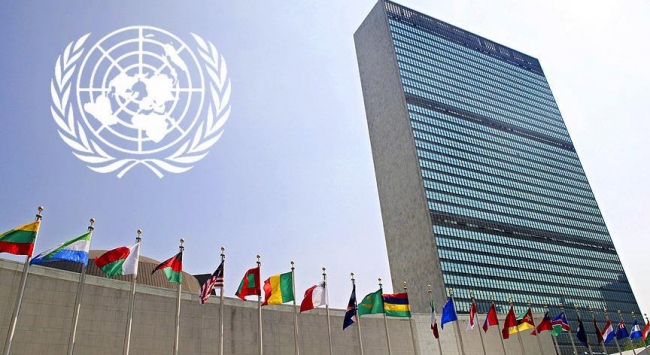Nordic Monitor
Turkey’s anti-terror law (No. 3713) does not comply with its international law obligations, and the country’s anti-terror legal framework should be urgently revised, a joint UN letter has underlined.
Turkey’s anti-terrorism legislation has been criticized by the European Union, the Council of Europe, the United Nation’s human rights bodies and international human rights organization for years.
Fionnuala Ní Aoláin, special rapporteur on the promotion and protection of human rights and fundamental freedoms while countering terrorism; Elina Steinerte, vice chair of the working group on arbitrary detention; Irene Khan, special rapporteur on the promotion and protection of the right to freedom of opinion and expression; Clement Nyaletsossi Voule, special rapporteur on the rights to freedom of peaceful assembly and of association; Mary Lawlor, special rapporteur on the situation of human rights defenders; and Diego García-Sayán, special rapporteur on the independence of judges and lawyers, sent a joint letter, dated August 26, to the Turkish government to express serious concern with the framework of the anti-terrorism law implemented by the Turkish government and its compatibility with Turkey’s international and human rights law obligations.
In the letter they recommended a review and reconsideration of the anti-terror framework. “We express concern that Turkey’s anti-terror legal framework in its current form does not conform to international counter-terrorism nor human rights standards … [and that it] be reviewed in order to ensure … compatibility with Turkey’s international legal obligations,” the UN letter stated. According to the letter, the anti-terror law limits the exercise of freedoms of opinion, expression and association and impacts the right to a fair trial and the prohibition of arbitrary detention.
Furthermore, the UN rapporteurs underlined the extension of emergency powers by incorporating many emergency regulations into ordinary legislation through law No. 7145, which profoundly affects the enjoyment of fundamental rights.
The UN rapporteurs asked the Turkish government to provide further information on the definition of terrorism in the anti-terror law and how the law is compatible with Turkey’s obligations under the relevant UN General Assembly, UN Security Council and Human Rights Council resolutions and the International Covenant on Civil and Political Rights (ICCPR).
Joint UN letter on Turkey’s anti-terror legal framework:
In the aftermath of a failed coup attempt in July 2016, the government of Turkish President Recep Tayyip Erdogan jailed thousands of people under sweeping anti-terror laws. Since then the government has violated international law by arresting tens of thousands, including journalists, human rights defenders, academics, Kurdish MPs, foreign reporters, civil servants and businessmen; purging at least 152,000 civil servants from their jobs without any effective judicial or administrative investigation; investigating more than a half million people on dubious terrorism allegations; and shutting down media outlets and seizing their assets. Torture allegations have often been voiced by human rights defenders since the failed coup.
“After the state of emergency was lifted on 18 July 2018, many of the national security powers adopted during this period were incorporated into ordinary law through amendments to the Anti-Terror Law and the Turkish Penal Code,” the letter stated. Most significantly, Law No. 7145, adopted on July 31, 2018, has preserved many of the abusive powers granted to President Erdoğan and the executive under the country’s two-year state of emergency, which was imposed following the coup attempt.
The Law 7145 extends the power of governors to restrict movement, bans public assemblies within the boundaries of the province they govern, allows police to hold some suspects for up to 12 days without charge and gives the government the authority to dismiss any public official, judge or prosecutor.

The UN letter urged the Turkish government to protect individual rights guaranteed under the Universal Declaration of Human Rights (UDHR), the ICCPR, the International Convention on the Elimination of All Forms of Racial Discrimination (ICERD), the Convention against Torture and Other Cruel Inhuman or Degrading Treatment or Punishment (CAT) and the European Convention on Human Right.
“We respectfully remind Your Excellency’s Government of the relevant provisions of the United Nations Security Council resolutions 1373 (2001), 1456(2003), 1566 (2004), 1624 (2005), 2178 (2014), 2242 (2015), 2341 (2017), 2354 (2017), 2368 (2017), 2370 (2017), 2395 (2017) and 2396 (2017); as well as Human Rights Council resolution 35/34 and General Assembly resolutions 49/60, 51/210, 72/123 and 72/180. All of these resolutions require that States ensure that any measures taken to combat terrorism or violent extremism, including incitement of and support for terrorist acts, must comply with all of their obligations under international law,” the letter said.
The UN rapporteurs criticized the definition of terrorist acts and terrorist offenders adopted by the anti-terror law since they “would permit the arrest and detention of individuals exercising their internationally protected rights, restrictions which would constitute arbitrary deprivations of liberty under international law.”
With reference to Article 14 of the ICCPR, the UN letter reminded the Turkish government of “the importance of developing and maintaining effective, fair, humane, transparent and accountable criminal justice systems which provide access to a fair and public hearing and access to independent and adequate legal representation in accordance with obligations under international law.”
The joint letter also revealed how the anti-terrorism legal framework creates the significant risk of arbitrary curtailment of the freedoms of expression, assembly and opinion and that the criminalization of offenses such as “praising, glorifying, or justifying terrorism” entails a disproportionate interference with freedom of expression.
The UN officials recalled the importance of a free media, saying, “The media plays a crucial role in informing the public about acts of terrorism and its capacity to operate should not be unduly restricted and that journalists should not be penalized for carrying out their legitimate activities.”
Turkey under the Erdoğan government has been a worldwide leader in the jailing of journalists in recent years. According to the Stockholm Center for Freedom (SCF) advocacy group, which monitors press freedom in Turkey, 172 journalists are currently behind bars in Turkish prisons. The SCF data also show 167 journalists have been forced to live in exile.












